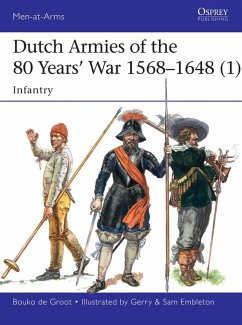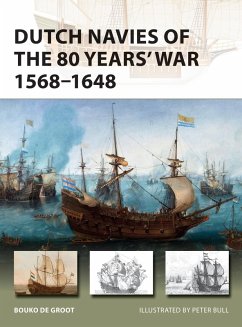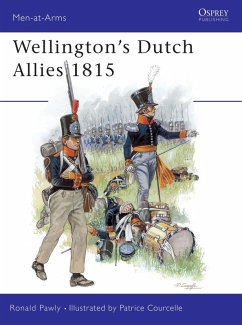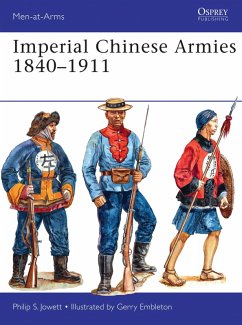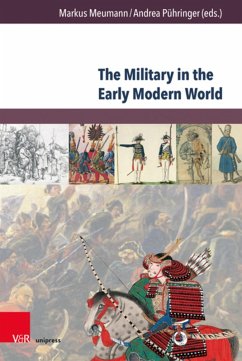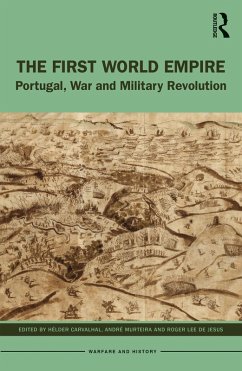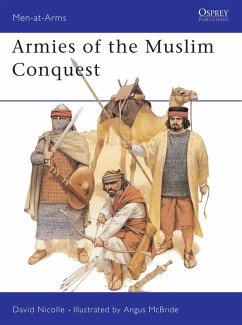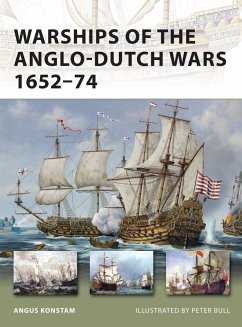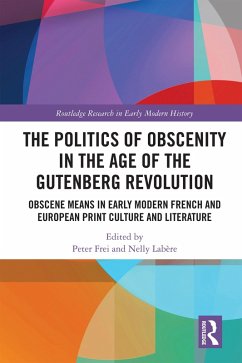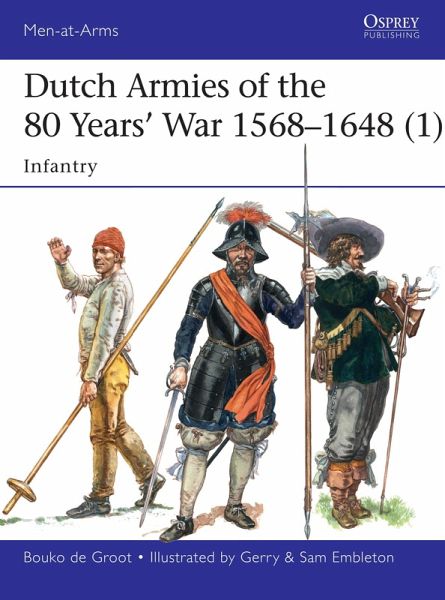
Dutch Armies of the 80 Years' War 1568-1648 (1) (eBook, PDF)
Infantry
Illustrator: Embleton, Gerry
Versandkostenfrei!
Sofort per Download lieferbar
9,95 €
inkl. MwSt.
Weitere Ausgaben:

PAYBACK Punkte
5 °P sammeln!
A highly illustrated study of the Dutch struggle for independence from Spain, ideal for enthusiasts of 16th and 17th century warfare and the development of military strategy.The 80 Years' War (also known as the Dutch War of Independence) was the foundation of Dutch nationhood, and during the course of the conflict one of its main leaders - Maurice of Orange-Nassau - created an army and a tactical system that became a model throughout Europe.This study, the first of a two-part series, focuses on the Dutch infantry. It examines how Maurice of Orange-Nassau attracted volunteers and students from ...
A highly illustrated study of the Dutch struggle for independence from Spain, ideal for enthusiasts of 16th and 17th century warfare and the development of military strategy.
The 80 Years' War (also known as the Dutch War of Independence) was the foundation of Dutch nationhood, and during the course of the conflict one of its main leaders - Maurice of Orange-Nassau - created an army and a tactical system that became a model throughout Europe.
This study, the first of a two-part series, focuses on the Dutch infantry. It examines how Maurice of Orange-Nassau attracted volunteers and students from across Europe, introduced innovative new training methods such as common drill movements, and standardised the organisation and payment system of the army to make it more than a match for the occupying Spanish. His successes inspired officers and generals across the continent to copy his methods, including many English officers who went on to fight in the English Civil Wars.
Featuring full-colour artwork and rare period illustrations, this book examines how the Dutch infantry was transformed into a fighting force able to defeat the might of Imperial Spain.
The 80 Years' War (also known as the Dutch War of Independence) was the foundation of Dutch nationhood, and during the course of the conflict one of its main leaders - Maurice of Orange-Nassau - created an army and a tactical system that became a model throughout Europe.
This study, the first of a two-part series, focuses on the Dutch infantry. It examines how Maurice of Orange-Nassau attracted volunteers and students from across Europe, introduced innovative new training methods such as common drill movements, and standardised the organisation and payment system of the army to make it more than a match for the occupying Spanish. His successes inspired officers and generals across the continent to copy his methods, including many English officers who went on to fight in the English Civil Wars.
Featuring full-colour artwork and rare period illustrations, this book examines how the Dutch infantry was transformed into a fighting force able to defeat the might of Imperial Spain.




